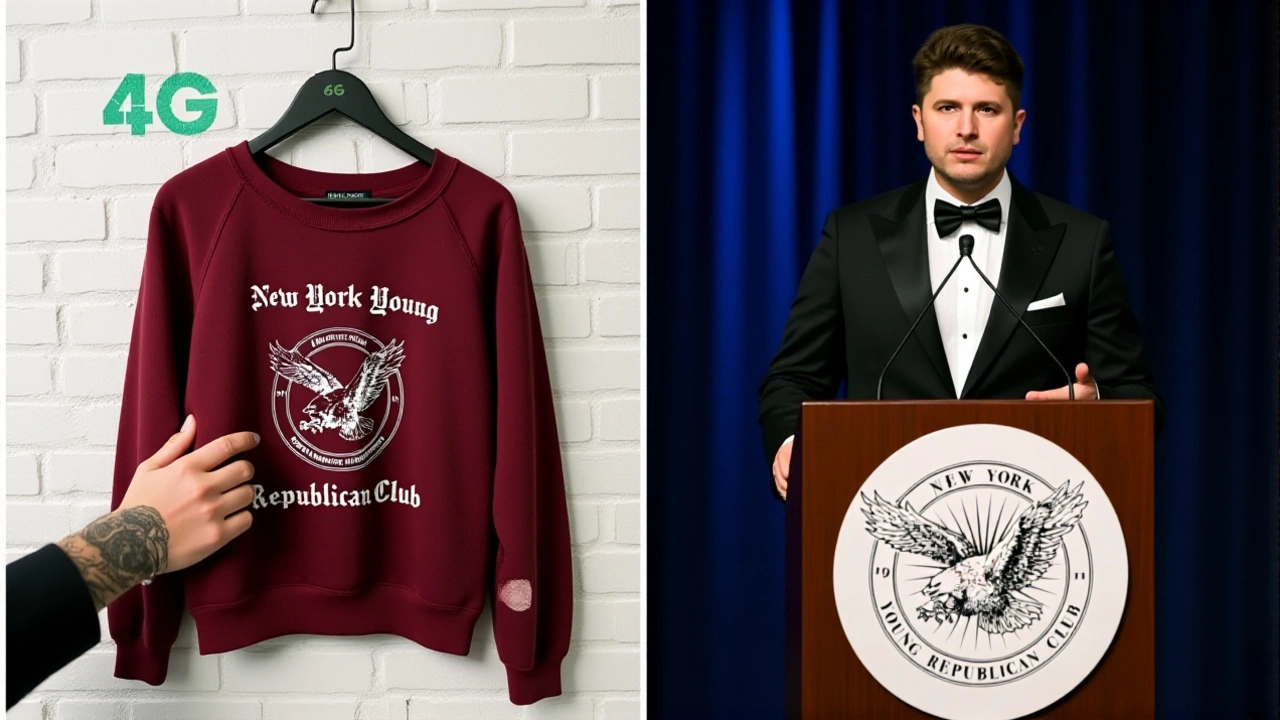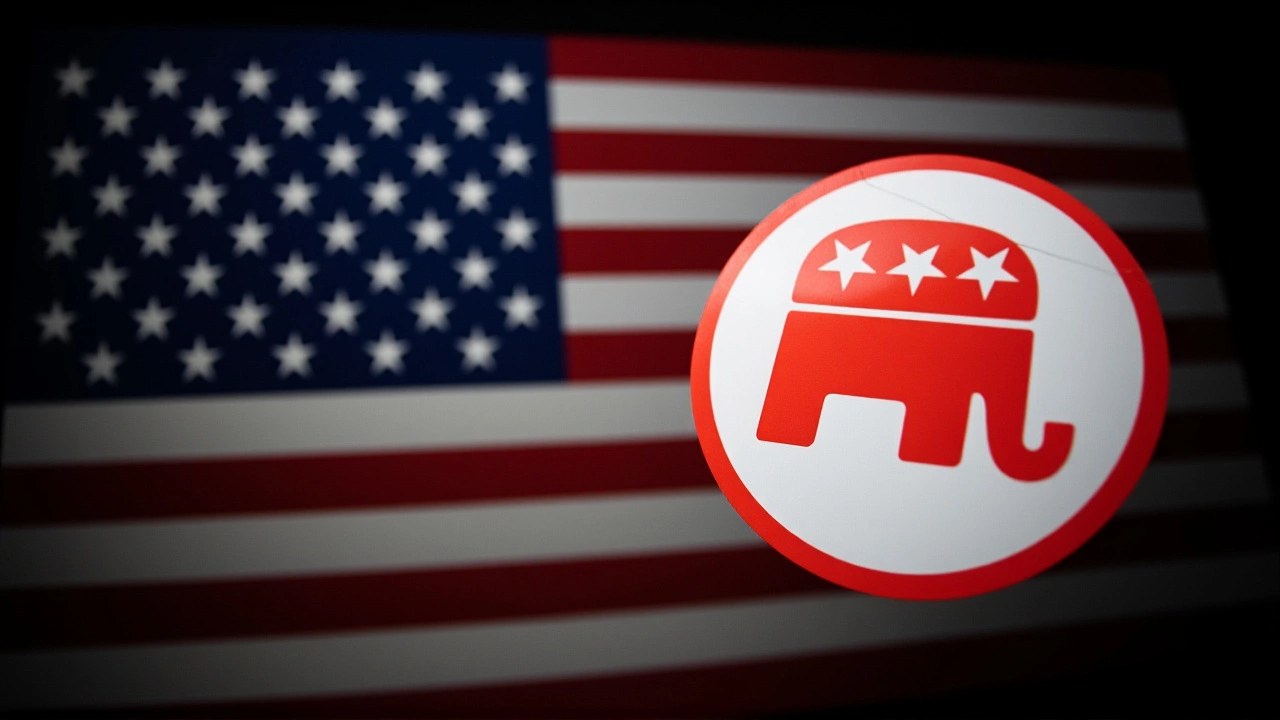When Donald Trump, former U.S. president, started sounding like a pop‑culture icon at the Conservative Political Action ConferenceNational Harbor, Maryland, young Republicans aged 18‑29 took notice. The New York Times’ feature, published Feb. 13, 2025, revealed that the former president’s unapologetic style is now being marketed as the new "cool" for a generation that feels alienated by mainstream politics.
Reporting from the Gaylord National Resort & Convention Center between Feb. 6‑9, lead reporter Astead W. Herndon talked to 37 attendees under 30, logging 12 formal interviews and 25 spur‑of‑the‑moment chats. The data points—ranging from campus club numbers to cash flows—paint a picture of a movement that’s as much cultural as it is political.
Why the Youth Surge Matters
The shift isn’t just a footnote. The Republican National Committee (RNC), led by chair Michael Whatley, earmarked $4.2 million for youth outreach in Q1 2025—a three‑fold jump from 2023. That money is being poured into what the party calls the "College Battle Bus" tour, slated to hit 127 campuses from March 1 to April 15, 2025.
Polling from the Harvard Youth Poll (Jan. 15‑28, 2025) showed 58 % of Republican‑leaning 18‑29‑year‑olds calling themselves MAGA supporters, up 22 points from the same survey two years ago. Meanwhile, exit polls from the November 5, 2024 election recorded Trump winning 48 % of the youth vote versus 43 % for President Biden—a reversal from 2020.
Key Players Driving the Wave
Marcus Chen, 24, founded Gen‑Z for Trump in Austin, Texas, after the Mar‑a‑Lago documents case. The group boasts 15,342 active members across 47 campus chapters and pulled in $1.3 million in 2024 donations—68 % of which are recurring contributions averaging $27.50.
"Trump’s unapologetic style isn’t just politics—it's a cultural reset that makes conservatism feel relevant again for our generation," Chen told Exhibit Hall B at 2:15 p.m. on Feb. 7.
Across the country, Olivia Rodriguez, 28, runs the Turning Point USA Collegiate Network out of Scottsdale, Arizona. She oversees 2,100 student chapters on an $8.7 million budget. "We're seeing 300 % more campus club applications since the 2024 election—this isn’t momentum, it’s a movement," Rodriguez said on a Feb. 10 phone interview.
College Republicans president Emma Thompson, 22, of the University of Florida, echoed the sentiment: "Being a Trump supporter now feels like belonging to a tribe, not just a party."
Numbers That Tell the Story
- Gen‑Z for Trump: 15,342 members; $1.3 M raised in 2024.
- Turning Point USA: 2,100 chapters; $8.7 M annual budget.
- Youth Republican club formations in swing states: Pennsylvania (127), Michigan (98), Wisconsin (84) Jan. 2024‑Jan. 2025.
- RNC youth outreach budget: $4.2 M in Q1 2025 vs. $1.05 M in Q1 2023.
- Arizona youth registration spike: 28,415 new GOP voters Jan. 15‑31, 2025 (217 % YoY).

How the Strategy Differs From Past Campaigns
In the early 2010s, GOP outreach to campuses focused on policy seminars and modest internships. Today, the playbook looks more like a pop‑concert: merch, TikTok videos, and rally chants. The RNC’s "College Battle Bus" is a literal tour bus equipped with sound systems, swag, and a rotating roster of speakers, from former congressional Republicans to social‑media influencers.
Dr. Keena Arbuthnot, director of the Center for American Women and Politics at Rutgers, told me on Feb. 5 that the shift began when Trump started using "anti‑woke" rhetoric on campuses. "He moved from being a political figure to a cultural symbol for disaffected youth," she explained.
Impact on Upcoming Elections and the 2025 Convention
With the Republican National Convention set for July 15‑18, 2025 in Milwaukee, Wisconsin, youth delegates are slated to make up 22 % of the total delegation—a jump from 15 % in 2020. Analysts say that the surge could tip the balance in close House races where college towns are pivotal.
The Pew Research Center’s Feb. 1‑10 survey found 63 % of MAGA‑aligned youth prioritize "fighting political correctness" over economic concerns, compared with just 29 % of non‑MAGA young Republicans. If that sentiment translates into turnout, the GOP could see a decisive edge in swing states that host large universities.

What Comes Next?
Beyond the Battle Bus, the RNC is planning a digital blitz on platforms like Discord and BeReal, targeting the same demographic that already hangs out in Gen‑Z for Trump’s Slack channels. Meanwhile, critics warn that the emphasis on cultural battles could distract from policy depth, potentially alienating moderate young voters.
One thing is clear: the youth wing of the GOP is no longer a peripheral footnote. Whether it’s a rally chanting "We want Trump!" for eleven minutes at CPAC’s Feb. 8 night‑time event, or a 847‑person "Gen‑Z Victory Summit" in Des Moines on Jan. 19, the energy is palpable. As the party gears up for a summer convention, the question on everyone’s lips is not just *who* will win, but *how* this new‑found youth zeal will shape the Republican playbook for the next decade.
Frequently Asked Questions
How does the Trump youth surge affect the 2026 midterm races?
Analysts say the influx of energized 18‑29‑year‑old voters could swing tight House districts in swing states like Pennsylvania and Michigan, where Gen‑Z for Trump and Turning Point USA have opened dozens of new campus chapters. If the RNC converts that enthusiasm into turnout, the GOP could flip seats that were previously marginal.
What led to the dramatic rise in MAGA identification among young voters?
The rise coincides with Trump’s targeted anti‑woke messaging on college campuses, increased funding for youth outreach, and the emergence of groups like Gen‑Z for Trump that blend political advocacy with pop‑culture branding. The Harvard Youth Poll shows a 22‑point jump since 2023, reflecting both strategic campaigning and a broader cultural backlash.
Which organizations are the primary drivers of youth Republican activism?
The leading players are Gen‑Z for Trump, founded by Marcus Chen, and the Turning Point USA Collegiate Network, overseen by Olivia Rodriguez. Both receive substantial funding—$1.3 M for Gen‑Z for Trump in 2024 and $8.7 M for Turning Point USA’s collegiate arm—and operate extensive campus networks.
What are the criticisms of the GOP’s youth outreach strategy?
Detractors argue the focus on cultural battles, such as “fighting political correctness,” diverts attention from substantive policy discussions and may alienate moderate or independent young voters. Some scholars, like Dr. Keena Arbuthnot, warn that a strategy built on identity politics could be fragile if the cultural moment shifts.
When is the next major Republican youth event?
The RNC’s "College Battle Bus" tour kicks off on March 1, 2025, traveling to 127 campuses across 15 states and wrapping up on April 15. This roadshow will feature speakers, merch giveaways, and workshops aimed at converting campus interest into voter registration and activism.
